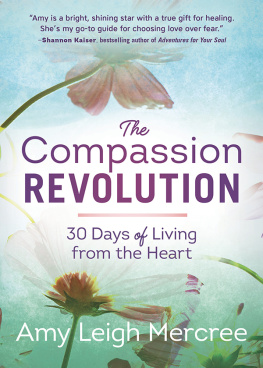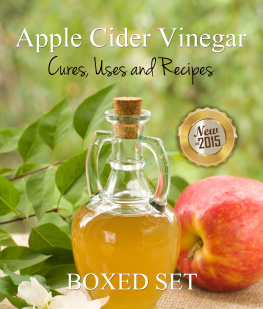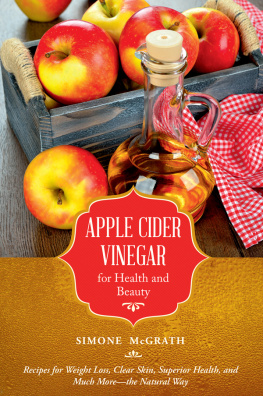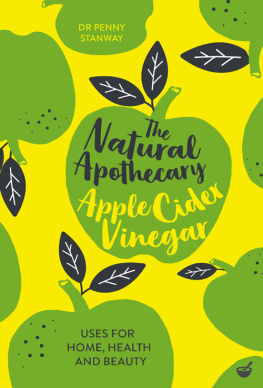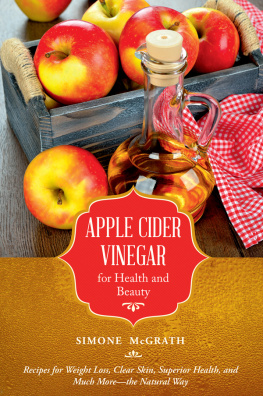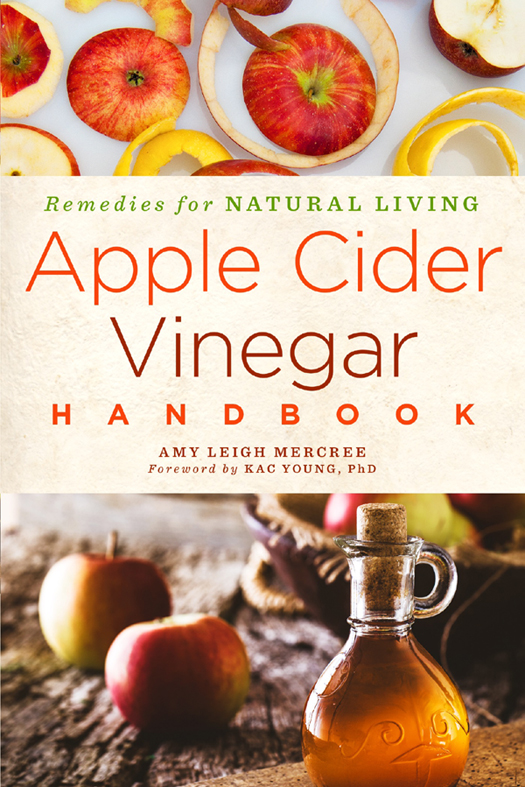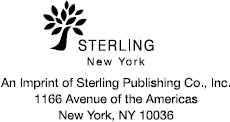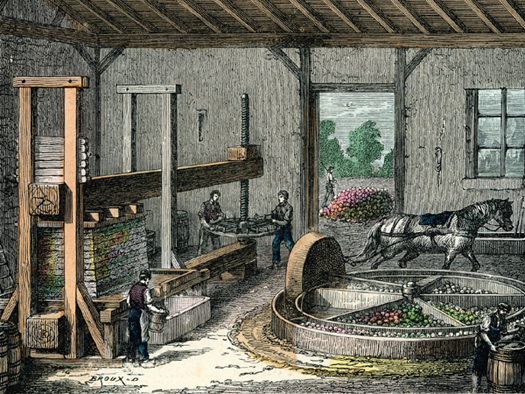STERLING and the distinctive Sterling logo are registered trademarks of Sterling Publishing Co., Inc.
Interior text 2018 Amy Leigh Mercree
Cover and Foreword 2018 Sterling Publishing Co., Inc.
All rights reserved. No part of this publication may be reproduced, stored in a retrieval system, or transmitted in any form or by any means (including electronic, mechanical, photocopying, recording, or otherwise) without prior written permission from the publisher.
This publication is intended for informational purposes only, and the publisher does not claim that this publication shall provide or guarantee any benefits, healing, cure, or any results in any respect. This publication includes alternative therapies that have not been scientifically tested and is not intended to provide or replace conventional medical advice, treatment, or diagnosis or be a substitute to consulting with licensed health-care providers. The publisher shall not be liable or responsible in any respect for any use or application of any content contained in this publication or any adverse effects, consequence, loss, or damage of any type resulting or arising from, directly or indirectly, such use or application. Any trademarks are the property of their respective owners, are used for editorial purposes only, and the publisher makes no claim of ownership and shall acquire no right, title or interest in such trademarks by virtue of this publication.
ISBN 978-1-4549-2911-6
Library of Congress Cataloging-in-Publication Data
Names: Mercree, Amy Leigh, author.
Title: Apple cider vinegar handbook : recipes for natural living / Amy Leigh Mercree.
Description: New York, NY : Sterling Publishing Co., Inc., [2018] | Includes bibliographical references.
Identifiers: LCCN 2018000116 (print) | LCCN 2018002289 (ebook) | ISBN 9781454929116 (e-book) | ISBN 9781454928973 (paperback)
Subjects: LCSH: Cider vinegar--Therapeutic use--Popular works. | Cider vinegar--Health aspects--Popular works. | BISAC: HEALTH & FITNESS / Healthy Living.
Classification: LCC RM666.V55 (ebook) | LCC RM666.V55 M47 2018 (print) | DDC
615.3/23642--dc23
LC record available at
https://lccn.loc.gov/2018000116
For information about custom editions, special sales, and premium and corporate purchases, please contact Sterling Special Sales at 800-805-5489 or .
sterlingpublishing.com
Cover design by Elizabeth Mihaltse Lindy
Interior design by Christine Heun
For picture credits see
FOREWORD
Apple Cider Vinegar Handbook is an information-packed resource by Amy Leigh Mercree featuring the multiple health benefits of apple cider vinegar (ACV). Ms. Mercree leads us on a captivating journey, showing us how to enhance our natural bodily systems, resulting in a healthier physique, by incorporating ACV as a regular part of our food intake.
As I write this, I am sipping on Ms. Mercrees wonderful recipe for Roman posca (), which may be one of the most interesting and delicious drinks I have ever imbibed. I was not unfamiliar with the use of ACV, but Ms. Mercree has expanded and extended those uses into a resourceful book that is as easily digested as ACV.
ACV may be one of the best hidden treasures of the world, and Ms. Mercree, with her background in healing and counseling, might just be another.
In Apple Cider Vinegar Handbook, Ms. Mercree educates us with her lavish knowledge of ACV, treats us to a fascinating history of it, the various methods used in fermentation, and why a particular method enhances ACVs health benefits.
The common complaints I hear regularly in my naturopathic and hypnotherapy practice are overall health concerns: loss of energy, the need for weight reduction or smoking cessation, the desire for longevity, recurring conditions, and chronic pain. I have been a longtime advocate that food either heals us or hurts us; every bite we take either fights disease or feeds it.
These familiar grievances are conditions caused, or exacerbated by, inflammation (heart disease, arthritis, diabetes, obesity), weight management (diet, exercise, anorexia), and gut health and digestion (acidity, heartburn, indigestion, frequent colds, IBS, stomach upset, immune disorders). Ms. Mercrees book discusses many of these root causes and suggests cures for them through the use of ACV.
In my practice, I find that a majority of my clients come to me because they are constantly plagued by weight challenges. Some cant seem to keep the weight off; others dont want to eat at all and are dangerously underweight. Weight control is a source of deep emotional stress for them as well as being the main culprit in many of their related health concerns. I believe Ms. Mercrees easy-to-read book will improve my clients understanding of the chemistry of their bodies and how they can use ACV to help regulate key physical processes.
According to Ms. Mercree, ACV taken regularly can affect metabolism and stimulate gastric acids to assist the body in digesting food and eliminating waste. She even suggests that ACV can help cure the ordinary cold, or at the very least, reduce its symptoms and shorten the life of the bacteria or virus causing the discomfort.
Ms. Mercree skillfully walks us through a myriad of common complaints throughout her well-organized chapters and explains how ACV can aid in alleviating many common ills. Her description of the acid-alkaline balance is clear and right on the mark. In my practice I emphasize that the key to proper digestion is the intricate balance of alkaline and acid foods in the system. Too much of one or the other hampers effective digestion and the subsequent absorption of minerals and vitamins into the bloodstream from the foods we eat and drink.
If we keep our body at an even pH (power of hydrogen) balance, many of our complaints naturally disappear. Our ideal pH is slightly alkaline: 7.30 to 7.45. When we regulate our bodys balance, we allow it to function at a higher level, since it is not required to waste vital energy removing acids and toxins in a frantic attempt to rebalance a pH that is off-kilter. Ms. Mercree stresses that AVC helps the body to stay in acidic-alkaline balance, thereby improving our health and energy. The chart she provides in thoroughly explains what a body should be consuming for optimal pH balance. That chart alone is worth the price of the book.
In her book, Ms. Mercree clearly explains that vinegar is, at its core, acetic acid. This beneficial acid is composed of necessary proteins, enzymes, probiotics, phosphorous, magnesium, potassium, and calcium. It is not like any other vinegar since it comes from the fermented juice of an apple and, similar to kombucha, forms a SCOBY layer (that is, a symbiotic culture of bacteria and yeast), which holds the nutrients and minerals that assist the body in multiple functions.
ACV also helps regulate blood sugar. In a study from Arizona State University, subjects took a drink of 20 grams of apple cider vinegar, 40 grams of water, and 1 teaspoon of artificial sweetener with each meal. Those with insulin resistance who drank the vinegar had 34 percent lower postprandial (after-meal) glucose compared to controls.



